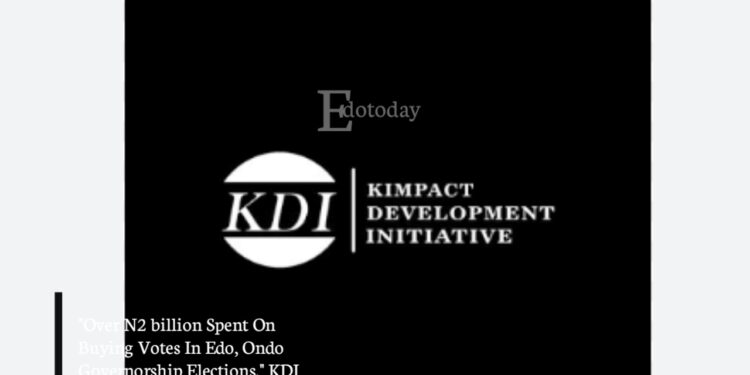In Ondo State, the governorship elections were conducted on November 16, 2024, and on September 21, 2024.
Kimpact Development Initiative (KDI), a civil society organization, claims to have monitored more than N2 billion spent by political parties and their candidates in the Edo and Ondo states during the previous year’s gubernatorial elections.
Additionally, it detailed the N9.7 billion and N3.7 billion spent on election-related expenses in the states of Edo and Ondo, respectively. In Ondo State, the governorship elections were conducted on November 16, 2024, and on September 21, 2024.
During the public presentation of the Campaign Finance Tracking Report for the Edo and Ondo State 2024 Governorship Elections on Tuesday, Oluwafemi Adebayo, Head of Research and Strategy at Kimpact Development Initiative (KDI), revealed this information.
Mr Adebayo said, “Vote buying was obvious and done with impunity.”
The group monitored N699,505,363 purportedly spent on vote buying by the All Progressive Congress (APC) in Edo State and N402,997,980 spent on the same by the Peoples Democratic Party (PDP), Nigeria’s main opposition party, according to the report’s breakdown.
According to the study, the PDP spent N121,688,280, and the APC spent N790,956,100 on vote buying in Ondo State. Both elections, held in Edo State on September 21, 2024, and Ondo State on November 21, 2024, saw the APC win and the PDP place first runner-up. With assistance from the Foreign, Commonwealth, and Development Office (FCDO), KDI organized the campaign funding tracking report.
However, because KDI claimed that the report only included what was visible to the public, it is likely to have significantly underestimated the amount of money that political actors spent during the elections.
The research offers a thorough examination of campaign spending by political parties and candidates and identifies significant changes in political financing, according to KDI, an organization dedicated to promoting democratic rights, public policy, good governance, and public involvement.
The paper also makes suggestions for improving Nigeria’s electoral process’s accountability, fairness, and transparency.












